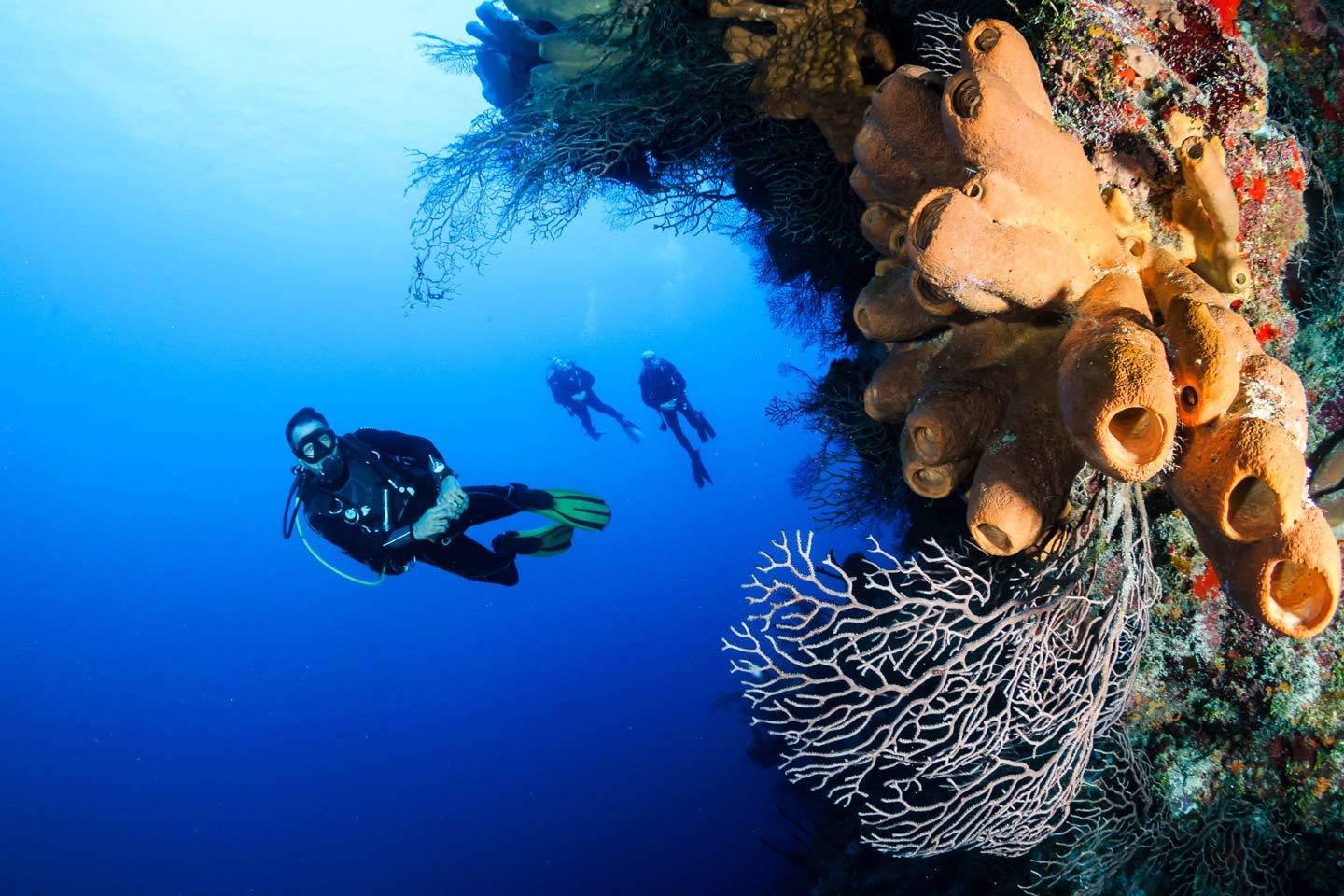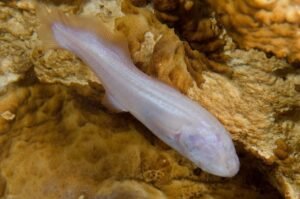Content:
- Scuba Diver: The First Step
- Scuba Diver Requirements
- Scuba Diver Features
- Open Water Diver: A Deeper, More Comprehensive Step
- Open Water Diver Requirements
- Open Water Diver Features
- Wise Choice: Scuba Diver or Open Water Diver?
Two of the most common scuba diving courses are Scuba Diver and Open Water Diver, and each offers a unique experience in the world of diving.
Open Water Diver is the most recognized diving certification in the world, with over 900,000 divers choosing it each year.
On the other hand, Scuba Diver is a subcourse of the Open Water Diver course and trains you to dive always accompanied by a divemaster or instructor.
In this blog, we will explore the characteristics, requirements, and differences between each of them so you can choose the one that best suits your needs.
Scuba Diver: The First Step
Scuba Diver is a subcourse of the Open Water Diver course. If you have limited time but truly want to become a diver, the Scuba Diver level might work for you.
It serves as an intermediate step toward achieving Open Water Diver certification if that’s your ultimate goal.
The Scuba Diver course allows you to dive under the direct supervision of an instructor or in relatively controlled and limited diving conditions.
It’s an excellent option for those who want to dive into the world of scuba diving quickly and with a lesser time commitment.
The best part is you don’t need any prior experience!
Below, we’ll outline the requirements and key characteristics of the Scuba Diver certification:
Requirements for Scuba Diver Certification
- Minimum Age: Most diving organizations require candidates to be at least 10 years old to obtain this certification.
- Physical Health: Divers must be in good physical health and complete a medical questionnaire to ensure they don’t have medical conditions that could jeopardize their safety while diving.
- Theoretical Training: Candidates must complete theoretical training, which includes lessons on diving principles, diving equipment, and underwater safety.
- Confined Water Training: Scuba Diver candidates must complete a series of exercises in confined water, such as a pool, to learn essential diving skills like equipment assembly and disassembly and buoyancy control.
- Limited Depth: Scuba Diver certification has a maximum depth limitation of 12 meters (40 feet), which means divers with this certification cannot dive deeper.

Scuba Diver Features
- Mandatory Supervision: Scuba Diver-certified divers must always dive under the direct supervision of a certified professional, such as a Divemaster or Instructor. This means they cannot dive independently.
- Shorter Training Time: Scuba Diver certification generally requires less training time compared to Open Water Diver, allowing divers to start diving more quickly.
- Ideal for Introduction: Scuba Diver is a suitable option for those who want to try diving before fully committing or for those with time constraints.
Open Water Diver: A Deeper, More Comprehensive Step
On the other hand, Open Water Diver is the first level of diving certification.
This certification is awarded by different diving organizations such as PADI (Professional Association of Diving Instructors), SSI (Scuba Schools International), NAUI (National Association of Underwater Instructors), among others.
To obtain this certification, aspirants must complete a diving course consisting of both theoretical and practical components.
Here are some key aspects, such as features and requirements for Open Water Diver certification:
Requirements for Open Water Diver Certification
- Minimum Age: Most diving organizations require candidates to be at least 10 years old to obtain Open Water Diver certification.
- Physical Health: Like Scuba Diver, divers must be in good physical health and complete a medical questionnaire to ensure they don’t have medical conditions that could jeopardize their safety while diving.
- Theoretical Training: Candidates must complete comprehensive theoretical training, which includes detailed lessons on diving principles, diving equipment, underwater safety, and dive planning.
- Confined Water Training: Open Water Diver divers must complete a series of exercises in confined water to acquire essential diving skills and become familiar with the equipment. These sessions are conducted in a pool or shallow water.
- Open Water Dives: The critical part of Open Water Diver certification involves completing a minimum of four open water dives, where divers apply what they have learned in theoretical and confined water training. These dives are conducted under the supervision of a diving instructor.
Open Water Diver Features
- Greater Maximum Depth: Open Water Diver-certified divers have the ability to dive to a maximum depth of 18 meters (60 feet) without supervision, granting them access to a wider range of diving sites and underwater environments.
- Independent Diving: Open Water Diver divers can plan and conduct dives independently, without the need for constant supervision by a diving professional. This provides greater freedom and flexibility in their underwater adventures.
- Broader Skill Set: Open Water Diver certification includes a broader set of skills and knowledge compared to Scuba Diver, ensuring that divers are better prepared to handle a variety of situations underwater.
- International Recognition: Open Water Diver certification is widely recognized worldwide and is the standard for those wishing to explore diving in different destinations. Divers with this certification can join dive groups, rent equipment, and dive at various diving sites around the world.

Wise Choice: Scuba Diver or Open Water Diver?
The choice between Scuba Diver and Open Water Diver depends on personal preferences and each individual’s diving goals. If you have limited time and want a quick introduction to diving, Scuba Diver certification is the best option.
On the other hand, if you want to dive more independently, to greater depths, and explore diving in different parts of the world, you should consider Open Water Diver certification as your starting point.
Both certifications are valuable and offer exciting opportunities to discover the underwater world. Regardless of your choice, diving is a unique experience that will enrich your life.
Dare to start your journey into the depths with YDC!
P.S. Another option if you want to explore marine life without the need for certification is our Discover Scuba Diving experience, a 1-day diving lesson for beginners where you’ll always be under the direct care of our instructors, ensuring your comfort, safety, and fun.



 Need help?
Need help?